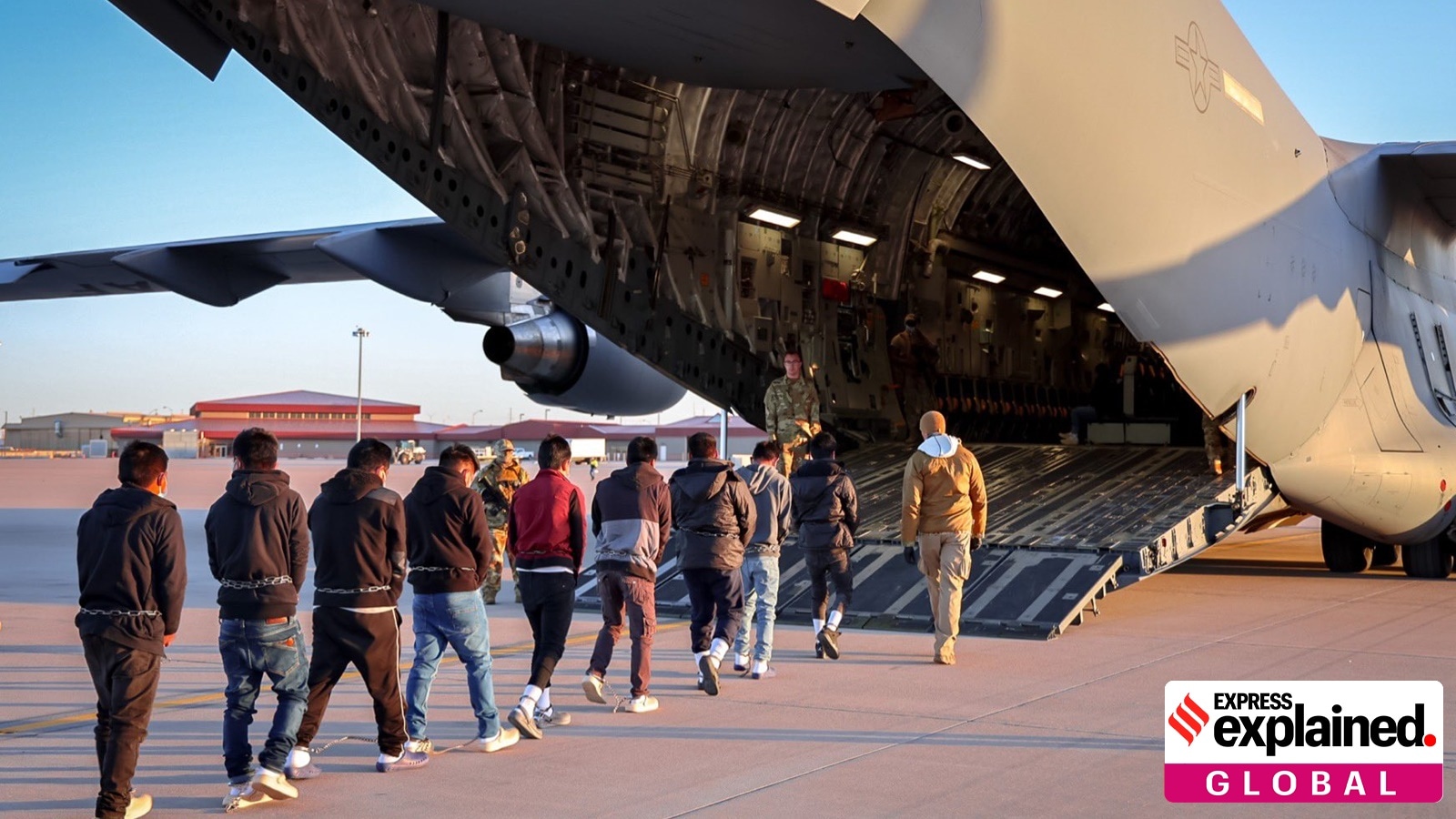 |
|
The recent deportation of 205 Indian nationals from the United States aboard a C-17 military transport plane has ignited a firestorm of controversy. The decision by the Trump administration to utilize military aircraft for deportations, rather than the more conventional commercial charters used by ICE (Immigration and Customs Enforcement), raises questions about cost-effectiveness, symbolism, and international relations. The sheer expense of employing a C-17, estimated at $28,500 per hour, pales in comparison to the roughly $630 per person cost of a commercial charter flight. Reuters' calculations show a military deportation flight to Guatemala cost at least $4,675 per migrant, more than five times the cost of a first-class ticket on a commercial airline. This exorbitant expenditure highlights the administration's prioritization of symbolic impact over fiscal responsibility.
The Trump administration's justification for this costly approach lies primarily in the realm of symbolism. The imagery of handcuffed and shackled migrants being loaded onto a powerful military aircraft is undeniably potent. The administration, consistently framing illegal immigration as an 'invasion' and migrants as 'aliens' and 'criminals', uses this visual representation to underscore its tough stance. Statements made by Trump himself and his press secretary, Karoline Leavitt, explicitly emphasize this message of strength and deterrence, positioning the deportations as a demonstration of renewed American power and respect on the world stage. This approach, however, fails to adequately address the substantial financial burden imposed on taxpayers.
The highly visible nature of these military deportations has not been well-received by several Latin American countries. The use of US military aircraft evokes historical sensitivities and concerns about sovereignty. The memory of past US military interventions in the region, often carried out under the guise of combating communism, remains a potent source of mistrust. Leaders in countries such as Colombia, Mexico, and Brazil have expressed their objections, emphasizing the importance of national sovereignty and diplomatic channels for managing immigration issues. President Gustavo Petro of Colombia, for example, refused to accept a military flight carrying deportees, insisting on the use of civilian aircraft. This resistance highlights the significant diplomatic challenges posed by the Trump administration's approach, potentially straining relationships with key regional partners.
The Trump administration's insistence on rapid deportations, bypassing lengthy detention and appeals processes, further exacerbates the situation. While Trump argues this is necessary to prevent lengthy and costly detentions, it effectively prevents due process and contributes to the already strained relations with recipient countries. The lack of consideration for the sensitivities of these nations, coupled with the heavy-handed symbolism of military aircraft, demonstrates a disregard for diplomacy and potentially fosters further instability in the region. The high cost of military deportation flights, the strained international relations, and the ethical questions surrounding rapid deportations without due process collectively represent a significant policy failure.
Beyond the immediate costs and international repercussions, the broader implications of this policy deserve consideration. The focus on symbolic displays of power may detract from more effective, long-term solutions to immigration challenges. Investing resources in comprehensive immigration reform, border security improvements, and addressing the root causes of migration could ultimately prove far more cost-effective and humane than the current approach. The optics of military-style deportations may temporarily appease a certain segment of the population, but it is unlikely to address the complex challenges of immigration and international relations in a constructive manner. A more nuanced and diplomatic approach is urgently needed to resolve this pressing issue effectively and sustainably.
Source: Indian migrants sent back from US: Why Trump is using expensive military planes for deportation
